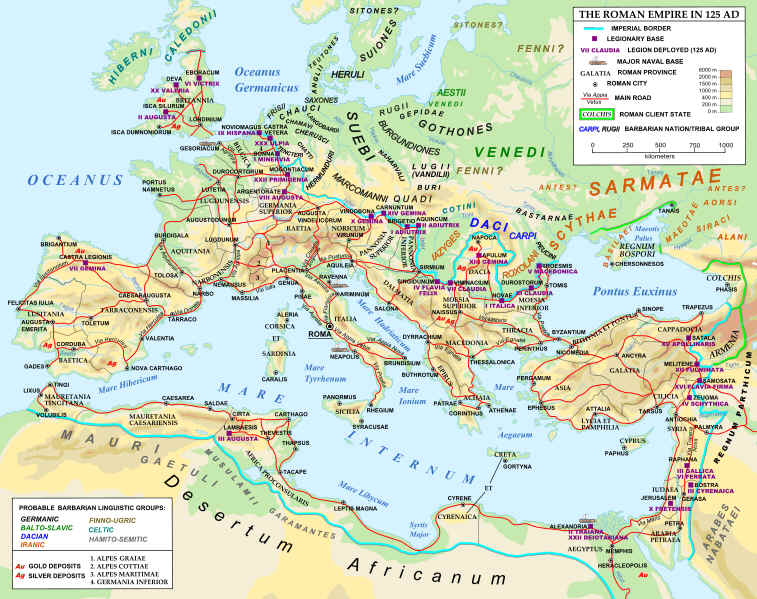Chapter 7 The Roman World
INTRODUCTION
While Alexander laid the foundations for Hellenistic civilization by carrying Greek culture and ideas into the heartland of the Persian Empire, further west the interplay of different cultures and civilizations also gave rise to a new variation on the theme of civilization. Phoenician cities had flourished in northern Africa and Spain since the late 2nd millenium B.C., while Greek cities dotted southern Italy and eastern Sicily in such profusion after the great period of Greek colonization that the region became known as Magna Graecia, or Greater Greece. These city-dwelling immigrants came into contact with various tribal peoples speaking Indo-European languages such as Celtic and Italic. In northern Italy the rather mysterious Etruscans, who may have migrated there from Asia Minor in several waves, had established their own highly structured and sophisticated kingdoms. As all these groups began to interact, a new civilization began to emerge in the western Mediterranean. The center of this new civilization was a small group of villages along the Tiber River not far from the western coast of Italy. Sometime in the early years of the 1st millenium B.C., these villages came together and organized themselves around a common market place, or forum. From this central forum grew the great imperial capital, Rome.

CHRONOLOGY